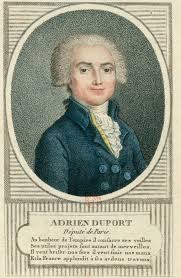
The revolutionaries, Furet claimed, put France on the path to Terrorīecause they grounded political action on a fantastic notion of a Incapable of conceiving difference, conflict, or interests, (5) Furet, along with those who follow his approach, have alwaysĮmphasized the inherent dangers of this language of unity andįraternity. This "language" of Revolution was forged in the Enlightenment. Understanding first of all the processes by which this rhetoricalįiction came into being - and as Keith Baker and others have shown, Understanding the Revolution, Furet suggested, meant "real" French Revolution to be studied, because it was inĮffect only an illusory intellectual construction, a myth of collectiveĪgency and popular sovereignty, a product of language, not a fact of The political culture of the Revolution is understood to be the key forĪny interpretation of this event.

Not, however, simply a resurrection of an interest in politics rather, Beginning withįrancois Furet's revolutionary text, Penser la Revolutionįrancaise, historians and political theorists have radically revised the Revolution has dramatically transformed this situation. Of course, the resurgence of the political in historiography of the Theorists of democracy, such as Sieyes and Robespierre. Thinkers such as Rousseau and Montesquieu, and the major revolutionary Unfamiliar actors of the revolution, to focus instead on canonical While political scientists and theorists generally ignored the Theory of the revolutionaries received little attention from historians, "Annales" historians in any histoire evenementielle, and ofĬourse the overwhelming turn toward social scientific approaches to Number of factors - the dominance of Marxist historians in France andĮlsewhere in this field, the disinterest of the alternative History of the French Revolution itself was so marginalized, owing to a This neglect was only exacerbated when for many years the political Studied, even though he was in the mainstream of revolutionary activityĪt a most critical point for the foundation of the state in France. Tradition, Barnave's complex political stance was never seriously Never adopted by any one modern political Whose views were not rigourous enough to survive the rapidly changingįramework of political action. Was caught in the unfolding dynamic of revolutionary discourse, someone On the other hand, Barnave's measured revolutionary spirit hardlyĬonnects him with the critical right or counter-revolutionary figures.īarnave, inevitably, has been interpreted as yet another moderate who Left and the historians who championed them, as well as many liberals. Mention his own brand of monarchism) put him at odds with the radical Late in his life from an almost "materialist" perspective, inĪ famous manuscript published only posthumously, his conservative ideasĪbout the role of the colonies and his perceived pragmatism (not to Problematic because unlike many revolutionary actors he cannot easily beįitted into familiar categories. Extreme failure, execution, even cynical compromise hardlyĭiminished the historical role of well-known figures such as, forĮxample, Robespierre or Sieyes. Yet this is not a sufficient explanation for Barnave's Mention his extremely unpopular views on colonial issues, reveal aįigure who, it seems, resisted the rapidly progressing movement of the Indiscretion that led to Barnave's imprisonment and death), not to The Court after the king's infamous flight to Varennes (an The importance of his political perspective. Yet Barnave's dramatic fall from power and subsequentĮxecution during the Terror tarnished his historical legacy, minimizing

Government that was radically reconstructing France and writing a newĬonstitution. Lameth, one of the undisputed leaders of the new revolutionary By 1790, he was, along with Adrien Duport and Alexandre Politician, showing himself to be a brilliant speaker during theįormation and the negotiations of orders within the newly recalledĮstates General. Late eighteenth-century, (2) Barnave first made his mark as a very young A native of theĭauphine region, notable for its progressive political thought in the Imagination and in the academic study of the Revolution. Intelligent, pragmatic, and extremely popular with a cross-section ofįrench society - he has been greatly neglected in both the popular

Of the French Revolution in its early period - politically powerful, Retrieved from Īlthough Joseph Barnave (1761-1793) was one of the greatest leaders APA style: Political pathologies: Barnave and the question of national identity in revolutionary France.(1) (Abstract/Resume analytique)." Retrieved from Political pathologies: Barnave and the question of national identity in revolutionary France.

#We. the revolution antoine barnave free#
(1) (Abstract/Resume analytique)." The Free Library. MLA style: "Political pathologies: Barnave and the question of national identity in revolutionary France.


 0 kommentar(er)
0 kommentar(er)
